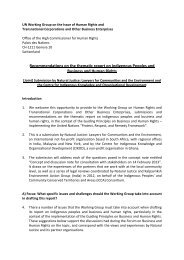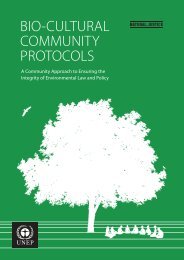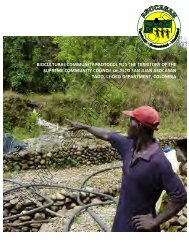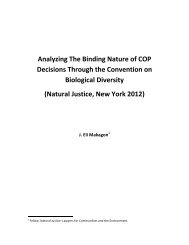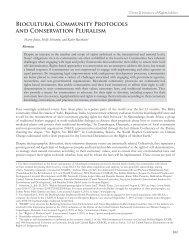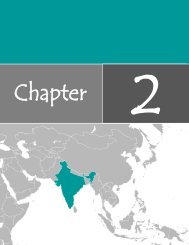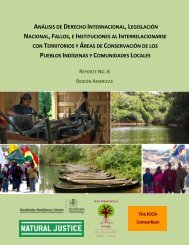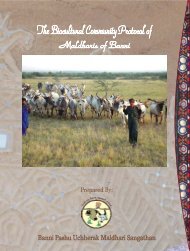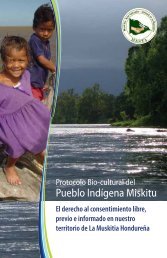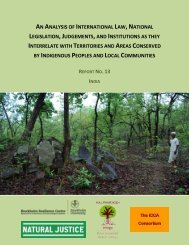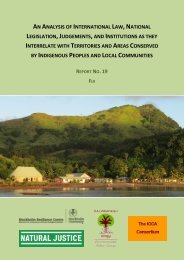English - Natural Justice
English - Natural Justice
English - Natural Justice
You also want an ePaper? Increase the reach of your titles
YUMPU automatically turns print PDFs into web optimized ePapers that Google loves.
etween laws and implementing agencies (such as between environmental and economicdevelopment), and ensuring that they are implemented in an integrated manner.Legal and Institutional IntegrationUnder the current Fijian Fisheries Act, protected areas where fishing is strictly prohibitedcannot be established legally, as all Fijians are permitted to fish for subsistence use withcertain gear. This gap in the law has led to difficulties related to community enforcement ofboth customary and national fisheries laws.Improve Access to <strong>Justice</strong> and Uphold the Rule of LawAs noted above, there are an increasing number of judgements being handed down byregional and national courts that are supportive of Indigenous peoples’ and localcommunities’ rights. Yet these cases remain isolated examples against a backdrop of courtsanctionedinjustice. Courts should not be the bastions of the privileged and must remainindependent. A review and revision of how Indigenous peoples and local communities canchallenge legislation and administrative actions and bring violations of laws that affect themto court is urgently required. The issue of legal standing is central to improving matters, as isthe accessibility of legal empowerment and free legal aid. Upholding the rule of law at alllevels is also fundamental to a functioning legal system that protects the rights of its citizens,rather than one that further entrenches the confluence between business and the state.Aboriginal TitleAboriginal title (also referred to in various countries as Indigenous title, native title, originalIndian title, or customary title) is a common law doctrine that the land rights of Indigenouspeoples to customary tenure persist after colonial powers assumed sovereignty. Therequirements of proof for the recognition, content and methods of extinguishing aboriginaltitle, as well as the availability of compensation in the case of extinguishment, varysignificantly by jurisdiction. A number of important judgements have been handed down bynational courts in Commonwealth countries affirming aboriginal title, including Botswana(San-Central Kalahari Game Reserve Cases), South Africa (Richtersveld Community v. AlexorLimited), Belize (Cal v. Attorney General), Canada (Delgamuukw v. British Columbia), andAustralia (Mabo v. Queensland (No. 2)).Support Legal Empowerment and Capacity BuildingLawyers, judges, legal aid clinics, NGOs, and donors should support Indigenous peoples andlocal communities to learn about and engage effectively with state legal systems. A series oflegal empowerment and capacity building programmes, including research, development ofeducational resources and tools, translation services, and financial support, should bedeveloped in close collaboration with diverse peoples and communities.



